Establishing a business that sells durable medical equipment (DME) may be very profitable, but it needs careful planning and close attention to detail. When starting a DME business, there are several important things to take into account, ranging from managing regulatory needs to setting up operating procedures. We are here to help you with an essential checklist that you can go through before a DME business startup guide
Market Analysis:
To start, find out how much demand there is in your target location for DME products and services by performing in-depth market research. Determine your target market, the competitors, and any possible market gaps that your company can fill.
Project Outline:
Create a thorough business plan that details your objectives, target market, marketing tactics, projected financials, and operating schedule. Your business plan will work as a guide for your DME venture and be necessary to draw in investors and obtain funding.
Compliance with Laws and Regulations:
Get familiar with the durable medical equipment business policies in your area. To ensure complaince to regional, national, and municipal laws, get the required licenses, authorizations, and certificates. This might entail accreditation from agencies.
Supplier Relationships:
Develop connections with reliable vendors to find DME items of the highest caliber for your company. Make sure your vendors provide competitive pricing, dependable shipping, and adherence to industry norms and laws.
Billing and Insurance:
Recognize the difficulties involved in invoicing insurance companies for DME goods and services. Learn the documentation specifications, payment rates, and coding criteria for various payers, such as commercial insurance, Medicare, and Medicaid.
Inventory Management:
Create effective inventory management procedures to keep an eye on expiry dates, maintain stock levels, and maximize inventory turnover. For DME product ordering, stocking, and distribution to run more smoothly, put in place a strong inventory management system.
Employment and Education:
Employ competent personnel with knowledge of DME goods, billing procedures, and customer service. Make sure your staff is well-versed on the items you sell, as well as the legal specifications and insurance billing practices by providing them with thorough training.
Marketing and Branding:
Create a compelling brand identity and marketing plan to advertise your DME company to patients, caregivers, and healthcare professionals. To successfully reach your target demographic, use a combination of print advertising, social media, websites, networking events, and offline and online marketing platforms.
Customer Service:
Put a high priority on providing exceptional customer service to gain your client’s confidence and loyalty. Offer individualized service, timely answers to questions, and dependable assistance with orders, refunds, and product inquiries.
Ongoing Improvement:
Assess and modify your company procedures on a regular basis to meet evolving consumer demands, legal constraints, and market conditions. Maintain up-to-date knowledge of market trends, technological developments, and best practices to set up your DME company for long-term success.
By adhering to this crucial checklist, you may create a strong basis for launching and expanding your DME company. Your community’s healthcare practitioners and patients will benefit from your successful DME business if you plan ahead carefully, pay close attention to detail, and are dedicated to quality and compliance.
